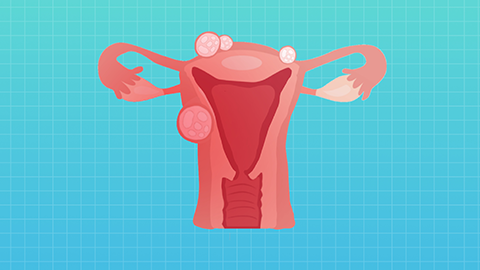What are the causes of uterine pain?
Generally, uterine pain may be caused by factors such as uterine contractions during menstruation, postpartum uterine involution, endometritis, uterine fibroids, and adenomyosis. It is recommended to seek timely medical attention to determine the cause and receive appropriate treatment under a doctor's guidance. Detailed analysis is as follows:

1. Uterine Contractions During Menstruation: During menstruation, the uterine lining sheds and the uterus contracts to expel menstrual blood, which may cause intermittent pain, known as dysmenorrhea, a normal physiological phenomenon. Keep the abdomen warm, avoid cold or raw foods, and apply heat compresses or drink brown sugar ginger tea for relief. If the pain is significant, ibuprofen sustained-release capsules may be taken as directed by a physician.
2. Postpartum Uterine Involution: After childbirth, the uterus contracts to return to its pre-pregnancy size, and abdominal fullness or pain may occur during contractions, usually decreasing over time. Uterine contractions can be enhanced through breastfeeding, and medications such as motherwort granules or oxytocin injections may be used under medical guidance to aid recovery. Rest adequately and avoid excessive exertion.
3. Endometritis: Bacterial infection causes inflammation of the endometrium, with pain resulting from inflammatory stimulation. Symptoms include increased vaginal discharge with an unpleasant odor and fever. Patients may follow medical advice to use antibiotics such as cefixime capsules, metronidazole tablets, or azithromycin dispersible tablets. Avoid sexual activity during treatment, maintain personal hygiene, and promote resolution of the inflammation.
4. Uterine Fibroids: The growth of fibroids enlarges the uterine volume, pulling surrounding tissues or compressing nerves, leading to dull or aching pain in the uterus. Larger fibroids may cause persistent pain. Patients may follow medical advice to use medications such as cinnamon twig and poria capsules, mifepristone tablets, or ibuprofen sustained-release capsules to alleviate symptoms. When fibroids are large or symptoms are severe, myomectomy may be required to remove the fibroids and relieve pain.
5. Adenomyosis: Ectopic endometrial tissue bleeds during menstruation, stimulating strong uterine contractions and causing severe dysmenorrhea. Pain may also occur outside the menstrual period. Patients may follow medical advice to use medications such as dydrogesterone tablets, norethisterone tablets, or naproxen sodium tablets to relieve pain. In severe cases, lesion excision surgery may be needed to remove ectopic tissue and reduce uterine contractions and pain.
Maintain a regular lifestyle, avoid excessive fatigue and mental stress, and pay attention to hygiene during menstruation and sexual activity. If uterine pain recurs frequently or becomes severe, record the timing and triggers of the pain to assist doctors in identifying the cause and providing targeted treatment, thus maintaining uterine health.





